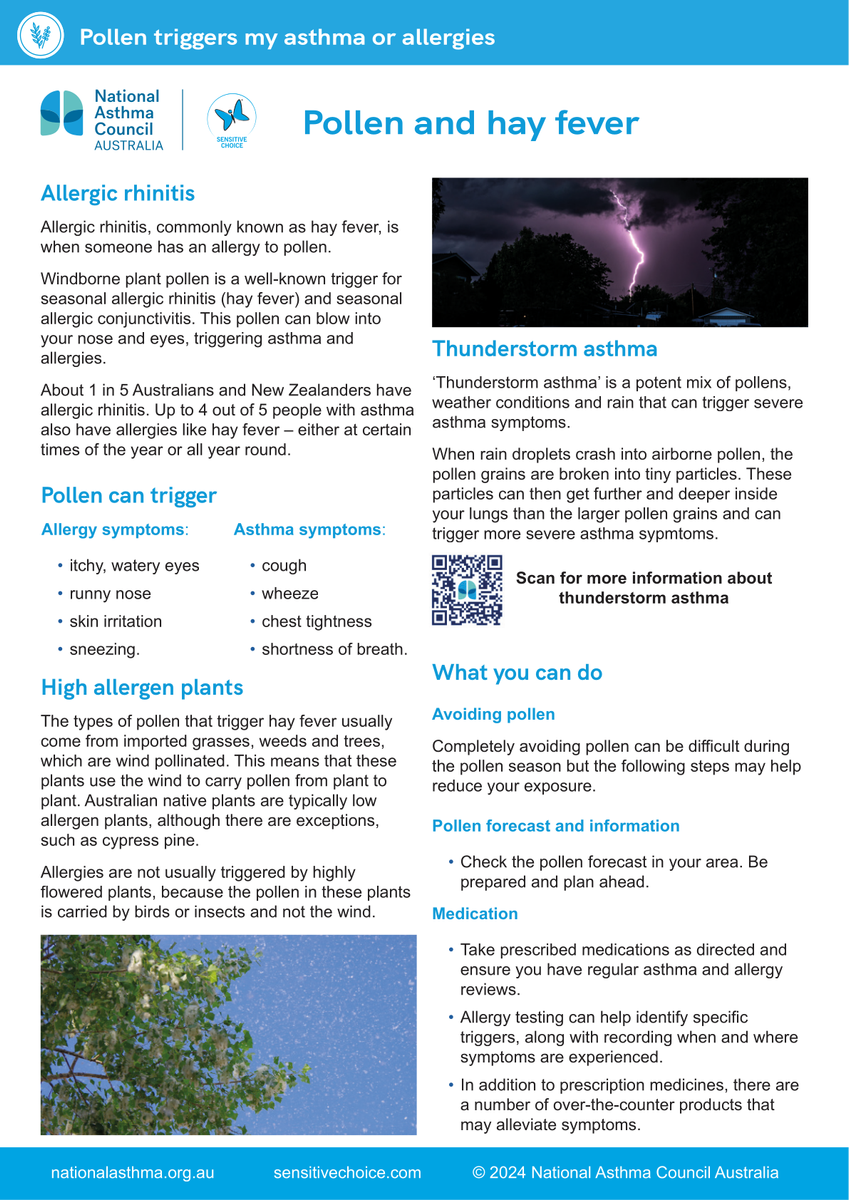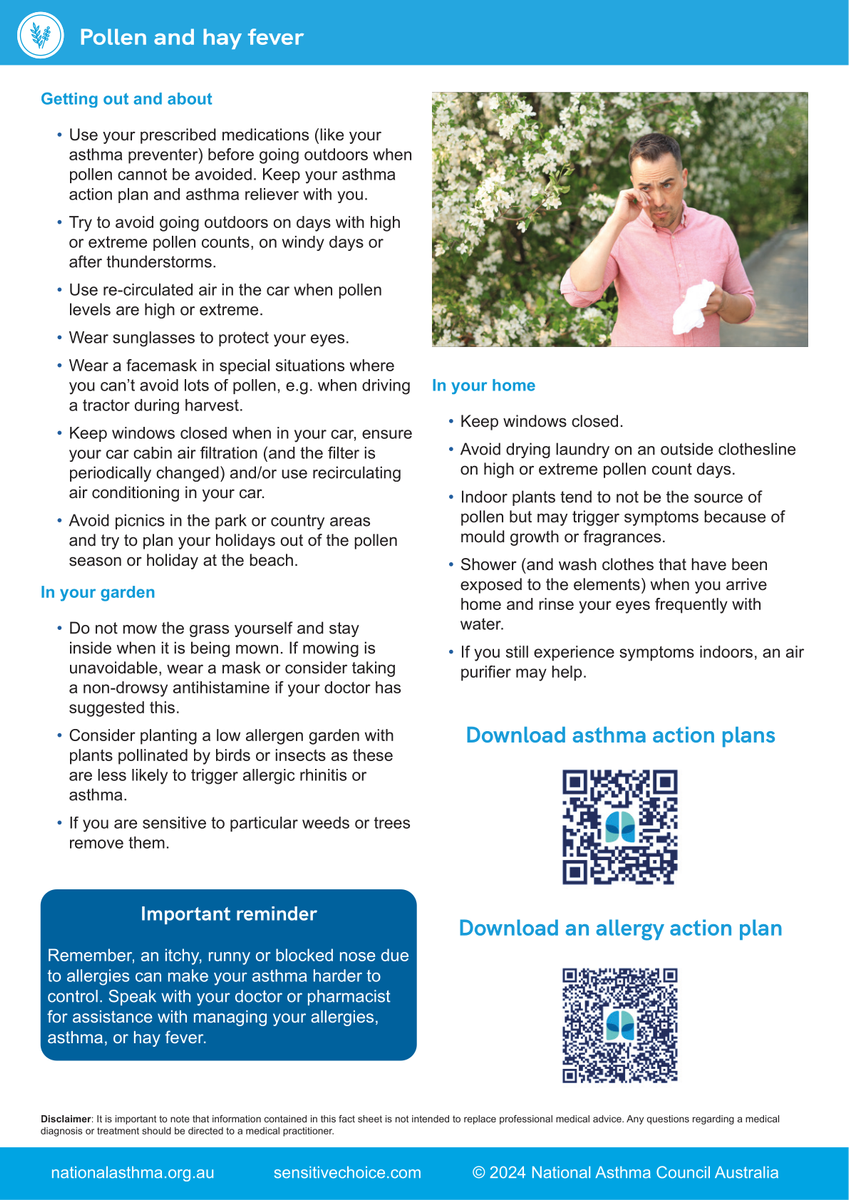First Aid News
Pollen & Hayfever/Thunderstorm Asthma/Whooping Cough

First Aid News
Pollen & Hayfever/Thunderstorm Asthma/Whooping Cough




Grass pollen season, which typically runs from October to December each year in Victoria, brings an increase in asthma and hay fever symptoms. It also increases the risk of thunderstorm asthma. For people with asthma or hay fever, especially those who experience wheezing or coughing with their hay fever, thunderstorm asthma can be sudden, serious and even life threatening.
Berwick Chase Primary School will implement a range of measures to keep our school community safe as the risk of thunderstorm asthma increases.
Many of our staff are trained in asthma first aid, and we will monitor the VicEmergency app to receive thunderstorm warnings, and, where appropriate, keep students indoors when weather forecasts identify greater risk.
During the season, there are some things you can do to prepare and protect yourself and your family:
Protect yourself this pollen season – managing asthma and allergies matters.
Find out more
For more information, speak to your doctor. You can also visit the Better Health Channel website.
Whooping cough cases are continuing to increase across Victoria, particularly among school-aged children.
Whooping cough is a very contagious infection, mostly spread through coughing or sneezing. Symptoms include:
Whooping cough can lead to life threatening infections in babies.
If your child is unwell, they should not attend school. Please see a doctor if you or your child develops whooping cough symptoms. Early diagnosis and treatment will help reduce the spread of the infection.
If your child is diagnosed with whooping cough, they must not attend school for 21 days after the onset of the cough, or until they have received 5 days of antibiotic treatment. You must notify the school if your child is diagnosed with whooping cough.
To further reduce the spread of infection to your child and the school community, the Public Health and Wellbeing Regulations 2019 require that some students who were in the same classroom as a student diagnosed with whooping cough should not attend school.
Your child should not attend school for 14 days after they were last exposed to a person diagnosed with whooping cough, or until they have taken 5 days of a course of antibiotic treatment if they are:
This exclusion is required by law – refer to the School exclusion table for primary schools and children’s services.
If your child is diagnosed with whooping cough, please contact the school to let us know.
For more information about whooping cough, refer to Whooping cough on the Better Health Channel.
Vaccination is the best way to reduce the risk of whooping cough. The Department of Health recommends staying up to date with immunisations, including booster doses. A free booster dose of the pertussis vaccine is covered under the national immunisation program for students aged 12 to 13. If you are unsure about your child’s vaccination status for whooping cough, please discuss with an immunisation provider, such as your doctor.
I really appreciate your support in keeping our students safe and well.